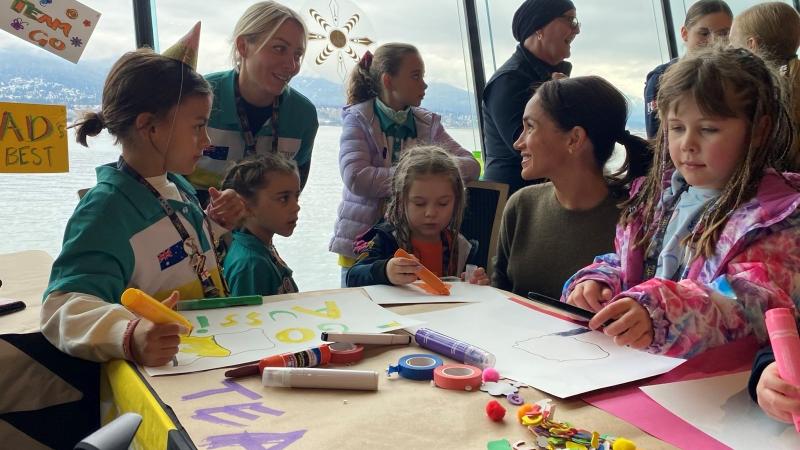11 February 2025
The spotlight was firmly on Team Australia’s adrenalin junkies during day three of Invictus Games Vancouver Whistler 2025.
The first-ever Invictus Games snow sports competition kicked off with four Aussies among a contingent of 100 skeleton competitors from across the globe, throwing themselves down an icy track while lying face down and headfirst on a sled from a starting position at 842m elevation.
The pressure was well and truly on – it was the first time the Aussies had ever experienced a skeleton run and they had just one chance to make their mark.
“We’re all novices,” Team Australia’s Luke Manhire said.
“It was my first ever skeleton experience and we had one shot – and I wish I could have done it again and again and again. It was that good.”
Putting his hand up to compete in skeleton was a no-brainer for Adelaide’s Mr Manhire, who joined the Australian Army in 2011 as a rifleman before medically discharging in June 2015. A lifelong thrill seeker, his ethos is to “grab life by the horns and enjoy every moment”.
“I’ve always said, if you ever want to do something, just do it,” he said.
“Don’t hesitate because you never know what could be coming down the road. I mean, look what happened to me. Anything can happen to anyone, at any moment in time.”
The former Army veteran speaks from experience. In 2022, he was hit by a car while out riding his motorcycle. The accident resulted in a left leg amputation at the knee.
Nine days after undergoing two surgeries, Mr Manhire was out of hospital and on the road to rehabilitation, with sport playing an important role in his recovery.
Sue Osborn has a similar story. The adventure seeker and former Army parachute surgical team medic and unmanned aerial vehicle operator from Queensland’s Emerald Lakes has always loved sport and found her happy place on the skeleton track.
Despite hitting a top speed of 98.5km on Whistler’s icy track and walking away with a bit lip thanks to the G-forces pushing her head towards the ice, Ms Osborn described the day as “probably the best thing I’ve ever done”.
“It was so much fun,” she said.
“Parachuting in the Army was pretty cool but skeleton on the ice at 98 kilometres an hour is pretty awesome. I would definitely go back and do it again.
“I certainly didn’t feel like I was going 98 kilometres an hour so it’s kinda like a waterslide but way better.
“Afterwards I was just pumped. I’m a thrill seeker of every activity, that’s why my body is broken.”
Ms Osborn suffers from a long list of service-related injuries to her ankles, knees, lower back, right shoulder and neck.
Enjoying the games experience with partner Renee and daughter, Bella, Ms Osborn said the Invictus experience had made a huge impact on her life, continuing to play wheelchair basketball with her local team beyond the games.
The local team has been following her journey and supporting from afar through social media channels. The team is sure to be in awe of her experience on the ice.
“Where else can you say you went down the winter Olympic skeleton track? Never again, once in a lifetime,” she said.
Times for Team Australia’s skeleton competitors during day three include Major Liz Daly, 33.16 seconds, top speed of 97km/h; Sue Osborn, 33.19 seconds, 98km/h; Sean Grimmond, 33.67 seconds, 96km/h; and Luke Manhire, 34.01 seconds, 95km/h.


